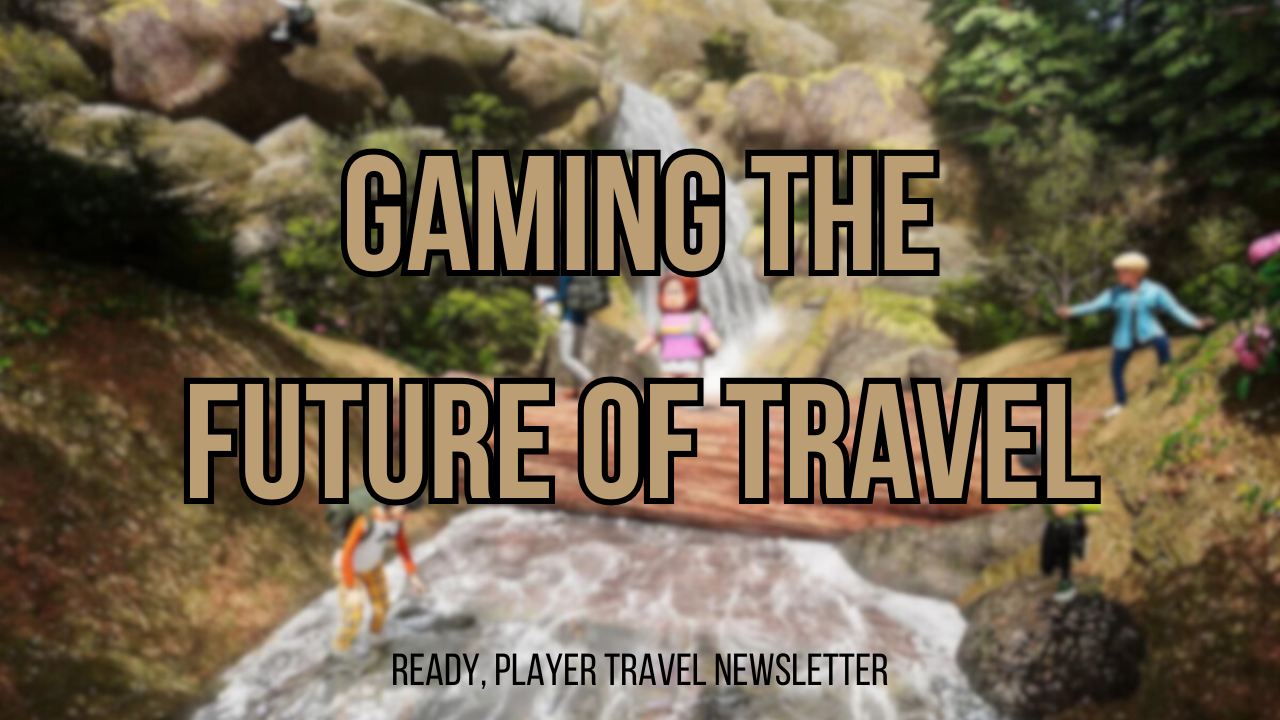BLOG
- March 19, 2025
Gaming the Future of Travel: How to Build Tourism Experiences on Roblox

Roblox has evolved beyond just a gaming platform—it’s a thriving ecosystem of virtual experiences where brands, creators, and players intersect. For those in the tourism, entertainment, and experiential industries, understanding what makes a Roblox game successful is the first step in leveraging its massive audience.
The Core Elements of Successful Roblox Games
Successful Roblox games focus on five key elements:
1. Core Gameplay Loop (Engagement)
👉 What keeps players coming back?
Players need a clear, fun, and repeatable activity that they enjoy over and over. The best games offer a mix of challenge, achievement, and progression.
Examples of Popular Genres & Tourism Applications

Tycoon Games – Build, Expand, and Manage
- Example: Theme Park Tycoon 2
- Description: Tycoon games put players in control of building and expanding their own businesses. In Theme Park Tycoon 2, players design, manage, and grow a theme park, balancing attractions, customer satisfaction, and revenue.
- Tourism Application: A resort tycoon game could allow players to develop hotels, entertainment zones, and tourism hubs, earning revenue and upgrading facilities to attract more visitors.

Obbies (Obstacle Courses) – Jump, Race, Avoid Hazards
- Example: Qatar Adventure
- Description: Obbies are fast-paced, skill-based games where players navigate obstacle courses filled with jumps, hazards, and time-based challenges. Qatar Adventure integrates elements of sports and urban exploration into an engaging game format.
- Tourism Application: Destinations can create interactive adventure courses reflecting real-world locations—imagine a Tokyo rooftop parkour challenge or an Amazon rainforest survival course.

Simulators – Train, Collect, Upgrade
- Example: Pilot Training Flight Simulator
- Description: Simulation games immerse players in specialized experiences where they can practice, collect items, and refine their skills. Pilot Training Flight Simulator lets players experience flying various aircraft across different environments, making it one of the most engaging aviation games on Roblox.
- Tourism Application: Airlines, cruise lines, and train operators can develop travel simulators that replicate real-world journeys, providing players with an interactive preview of their trips.

Roleplaying (RP) Games – Social Interaction and Realistic Experiences
- Example: Hilton Hotels Experience
- Description: Roleplaying games allow players to step into various professions and experiences, interacting with others in shared spaces. In Hilton Hotels Experience, players can take on hospitality roles, checking in guests, managing services, and upgrading their stays.
- Tourism Application: Hotels, resorts, and tourism brands can create immersive branded experiences, allowing players to virtually engage with their properties and services before booking real-world stays.

Adventure Games – Exploration, Quests, and Storytelling
- Example: Alone
- Description: Adventure games are centered around exploration, puzzle-solving, and immersive storytelling. Alone takes players on a journey through a scenic island, highlighting natural wonders and cultural heritage.
- Tourism Application: Travel destinations can use adventure mechanics to promote historical sites, eco-tourism, and cultural experiences, turning real-world locations into digital playgrounds.
2. Map & World Design (Exploration)
👉 What makes the environment immersive?
- The map should be instantly understandable—players need to know where to go.
- Hub-based worlds work well (airports, theme parks, resorts).
- The world should reward exploration (hidden areas, unlockable places).
🚀 Tourism Angle: A luxury resort game could include:
- Start in the lobby → Get a room key.
- Explore the resort → Pools, spa, restaurants, yacht excursions.
- Complete activities → Earn coins by jet-skiing, surfing, or attending special events.
- Unlock exclusive areas → Private island, VIP lounge.
3. Monetization & Progression (Retention)
👉 Why do players spend money/time?
- Currency & Upgrades – Players collect money, XP, or tickets to upgrade items (vehicles, hotels, VIP passes).
- Limited-time events – FOMO mechanics (only available for a week!).
- Customization – Skins, avatars, and VIP perks drive spending.
🚀 Tourism Angle: If you made a resort adventure game:
- Players start as a guest at a beachfront resort.
- They complete activities like surfing, diving, or wildlife tours.
- Unlock upgrades such as personalized villas, luxury excursions, and event access.
4. Social & UGC (Community-Driven)
👉 Why do players share and invite friends?
- Social hubs (nightclubs, beaches, race pits, concerts).
- User-generated content (UGC) – Custom outfits, room designs, activity planning.
- Live events – Music festivals, exclusive in-game experiences.
🚀 Tourism Angle: Imagine a music festival experience:
- Players attend a virtual Coachella or Ibiza-style festival.
- They can customize outfits, join dance-offs, collect VIP passes.
- Big brands or artists could sponsor in-game concerts.
5. IP, Branding, & Storytelling (Emotional Connection)
👉 Why does the game feel unique?
- Players need a strong theme that makes them feel immersed.
- Use real-world destinations or brand partnerships for authenticity.
- Add stories or challenges (compete in a racing league, manage a resort, explore ancient ruins).
🚀 Tourism Angle: A Formula 1 game could feature:
- Real-life tracks inspired by Monaco, Singapore, Las Vegas.
- Players start as rookie drivers and work up to elite sponsored racers.
- Partnerships with Red Bull Racing or Ferrari for exclusive in-game perks.
What’s Next? The Start of an Educational Series
This is the first installment of a deep dive into how the Roblox ecosystem works for brands, especially in the tourism and entertainment industries. In the next five articles, we’ll explore the most successful game categories, breaking down their mechanics, top-performing games, and how tourism brands can leverage them for engagement and monetization.
📌 Next in the Series:
- Tycoon Games – The Blueprint for Building a Tourism Empire
- Obbies – Turning Destinations into Interactive Parkour Experiences
- Simulators – Training the Next Generation of Virtual Travelers
- Roleplaying Games – Creating Social Tourism Experiences
- Adventure Games – How Exploration and Storytelling Boost Travel Engagement
Each category will be ranked, analyzed, and explored for its tourism potential.
Want to learn how to build your own tourism-focused Roblox game? Follow along as we uncover the best strategies, insights, and opportunities for the travel industry in gaming.
We would love to hear your ideas too!! Join the conversation!
And don’t forget to follow us at: https://www.linkedin.com/company/destiantenext
#roblox #tourismmarketing #travelmarketing #hospitalitymarketing #immersivetravel #3dtravel #genzmarketing #genztravel DESTINATE

Destinate creates professionally produced cinematic AI videos for major openings, launches, and pre-debut campaigns. Using a hybrid approach that blends GenAI, real-world assets, and creative direction, we help brands bring destinations, developments, and experiences to life before they open.
QUICK LINKS
SUBSCRIBE
To Our Ready, Player, Travel Newsletter Today
LOCATIONS
- NORTH AMERICA Los Angeles, USA
- LATIN AMERICA Mazatlán, Mexico
- ASIA Hong Kong, SAR